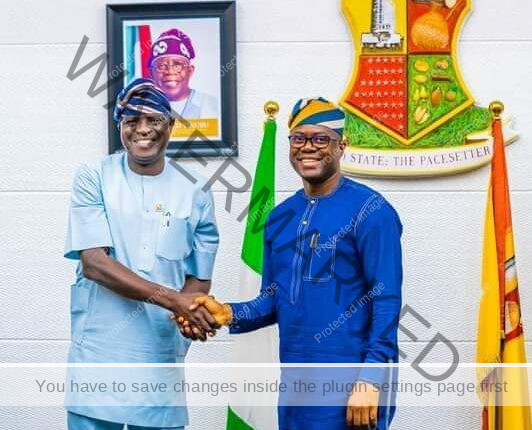In today’s fast-paced and often tumultuous political landscape, the emergence of principled leaders is a rare yet vital phenomenon. One such leader is William Akin-Funmilayo, the Commissioner for the Ministry of Lands, Housing, Survey, and Urban Development, whose dedication to public service and unwavering integrity has left an indelible mark on his community.
William Akin-Funmilayo, a retired civil servant, embodies the true spirit of public service. With a wealth of experience amassed over years of dedicated work in various capacities, Akin-Funmilayo has consistently demonstrated an exemplary leadership style that prioritizes the needs of the people over personal gain. His tenure as Commissioner is characterized by a focus not on self-aggrandizement but on uplifting those around him.
As a leader, he has taken to heart the principle that his role is to serve rather than to be served. This philosophy resonates deeply in today’s world, where corruption and self-interest frequently overshadow the genuine intentions behind public office. Akin-Funmilayo’s commitment to integrity is mirrored in his actions and decisions—he does not use his position to intimidate the oppressed or manipulate resources for personal wealth.
One of the most telling moments of Akin-Funmilayo’s character came when he told some people at a meeting “I didn’t beg God before He placed me where I am today, so why will I be asking for a tip or expect gratification before discharging my responsibilities” This profound assertion encapsulates his belief in responsibility and the transformative power of leadership. He understands that the essence of his role is to create an environment where people can thrive—a vision that he works towards daily.
In his interactions, Akin-Funmilayo emphasizes a commitment to humanity over monetary gain. He once remarked, “It is not what you will give me that will influence my actions; I will continue to do my best for humanity.” These are not mere words but a guiding principle that informs all his actions, ensuring that he can be trusted to act in the best interests of his community.
Under the guidance of his principal, Engineer Oluseyi Makinde, Akin-Funmilayo has aligned his efforts with a broader vision of public service that seeks to empower communities and transform lives through sustainable development. This collaboration reflects a unified commitment to responsible governance and the cultivation of opportunities for all citizens.
In a time when public trust in leadership can be fragile, William Akin-Funmilayo stands out as a model for what can be achieved through ethical leadership and a heart for service. His commitment to fairness and social equity has not only earned him respect but has also inspired many to follow in his footsteps.
As we reflect on the contributions of leaders like William Akin-Funmilayo, it becomes clear that integrity and selflessness are not just traits to be admired, but essential characteristics for those in positions of authority. In a world that often seems driven by self-interest, Akin-Funmilayo’s approach serves as a reminder of what is possible when leaders prioritize the welfare of their communities.
His story encourages others in public service to embrace a clean conscience, wield their power judiciously, and use their platforms to implement meaningful change.



